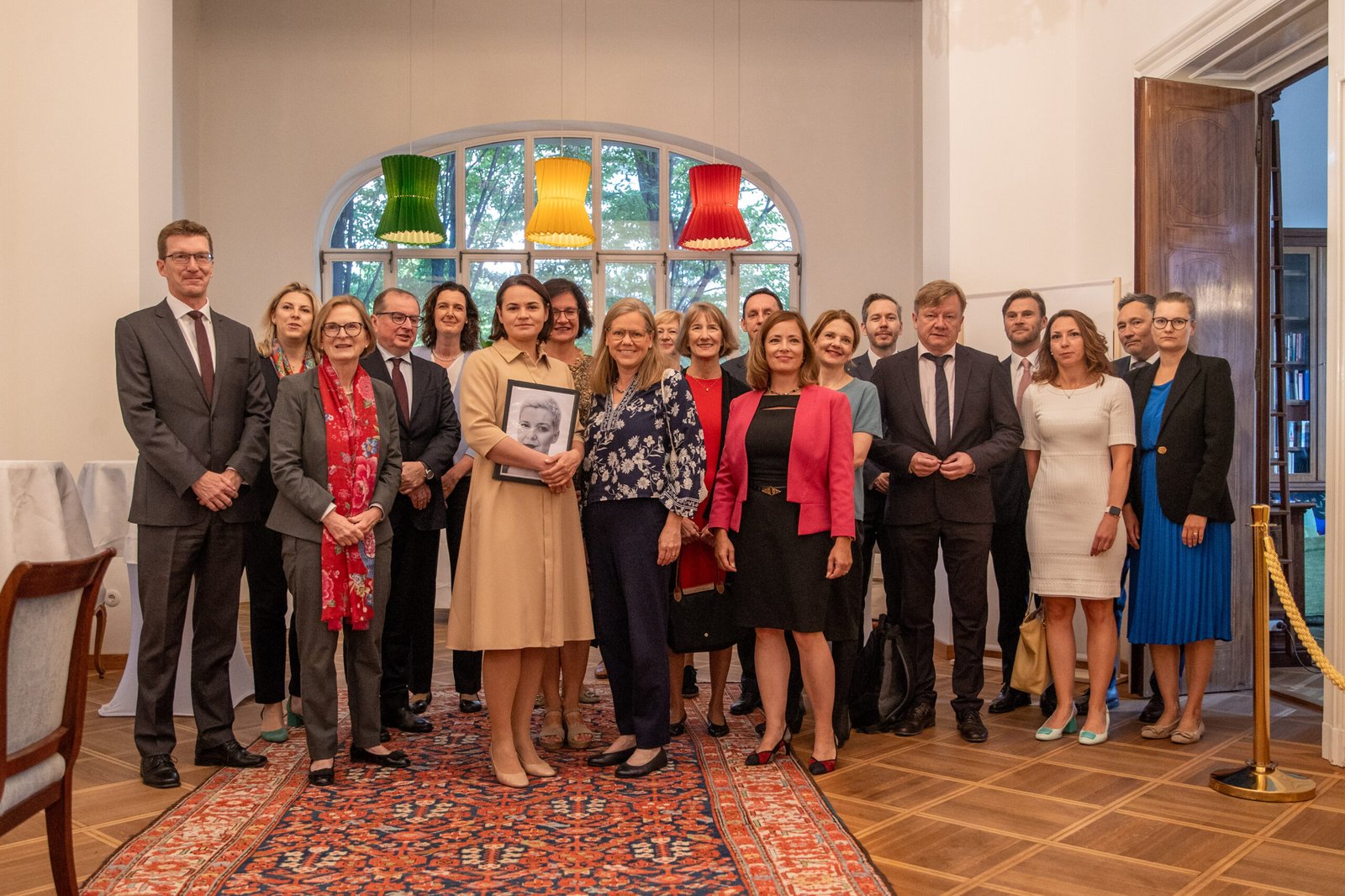On September 5, 2025, in Vienna, Sviatlana Tsikhanouskaya addressed representatives of OSCE member states at the meeting of the Group of Friends of Democratic Belarus. The event brought together more than 30 representatives of participating states, including ambassadors and heads of delegations from the United Kingdom, Canada, and the United States. The discussion lasted over an hour and a half.
The focus was on European security, sanctions, support for the repressed, the release of political prisoners, the challenges Belarusians face in exile, visa and migration issues, mobility, education, as well as the preservation of culture and national identity. These topics were thoroughly discussed, creating a comprehensive picture of the situation in Belarus and the international community’s role in supporting the Belarusian people.
Before country representatives started asking questions and actively participating in the debate, Ms. Tsikhanouskaya delivered a keynote speech. She stressed the importance of international support for the Belarusian people, called for the immediate release of political prisoners, and urged an end to systemic repression by the Lukashenka regime. She emphasized that Belarus is a key factor in regional security:
“Europe cannot be safe without a free Belarus. If there is no democracy in Belarus, Russia will always try to control the Belarusian ‘balcony’ to threaten Ukraine and other European countries”.
She addressed national dialogue, underscoring that the release of political prisoners and an end to repression must be the first step toward a peaceful transition of power:
“We see the release of prisoners and an end to repression as the first step toward national dialogue and a peaceful transition of power. That is why last month we launched the National Round Table campaign. The goal is to send a clear signal to the regime’s officials that we are ready to talk with all those who support Belarus’ independence. I know that many within the system support this approach. They, too, want an independent Belarus – and a European one”.
Ms. Tsikhanouskaya emphasized that, despite repression, society has preserved its faith in change, and the democratic forces are already developing practical solutions for Belarusians in exile:
“When the moment comes, we must be ready to take responsibility, initiate reforms, and restore the rule of law”.
She urged the international community to distinguish between the regime and the people and to treat Belarusians as allies:
“Differentiate between the Belarusian people and the regime. See Belarusians as your potential allies in defending peace and security. Invest in the people, not in the regime”.
Sviatlana Tsikhanouskaya also recalled the release of her husband:
“My husband Siarhei was released two months ago. This proves that everything is possible through joint efforts and in solidarity”.
Concluding her speech, Ms. Tsikhanouskaya expressed confidence in the inevitability of change:
“Change in Belarus is inevitable. We must prepare for Belarus after Lukashenka. This is our task and responsibility, but we cannot do it alone. I am convinced that together with our international friends, we can achieve change”.








